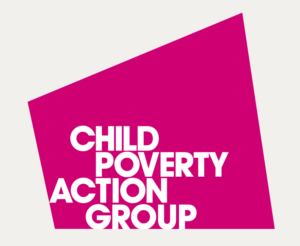
Child Poverty Action Group (CPAG) and Greater Manchester Poverty Action (GMPA) are authors of a new report that focuses on free school meals in the North West of England, including new statistics on the number of children in poverty across the region missing out. It also looks at the role of schools and local authorities in FSM provision, and considers the socio-economic benefits that support a nationwide universal roll out of FSM.
Every North West local authority has at least 1,500 school-age children in poverty who are not eligible for free school meals because the qualifying criteria is so restrictive.
CPAG and GMPA are urging local leaders to do what they can to ensure more kids get a free lunch but say the responsibility ultimately lies with the UK government to expand provision of free school meals across the country in order to tackle classroom hunger.
Infants are guaranteed a free school meal in England but children in Year 3 and above must be in households on universal credit with an income below £7,400 per year (before benefits and after tax) to qualify. This threshold has not changed since 2018, despite increasing inflation. It means 100,000 (one in four) school-age children in poverty across the North West can’t claim free meals – at a time when one in three children in the region are below the poverty line and the cost of living crisis continues to bite.
Government action on free school meals in England lags far behind other UK nations. In Scotland and Wales, universal provision is being rolled out across primary schools and, in Northern Ireland, the eligibility threshold is considerably higher than in England (eligibility is set at £14,000 in Northern Ireland). Emergency funding provided by the Mayor of London, Sadiq Khan, also means all state primary school children in London will receive free school meals until the end of the 2024/25 academic school year.
The new report highlights examples of local action being taken in the North West to increase access to free school meals, encouraging local leaders to do what they can but also to join national calls for expansion of entitlement to free school lunch.
It also outlines existing research, which shows children’s health, attainment and even school attendance is improved when free school meals are universal. Free lunch for every child would be a significant step towards ensuring the UK meets its international human rights obligations under the UN Convention on the Rights of the Child (which states that children have the right to food, clothing and a safe space to live and that the government should help families and children who cannot afford this) and under the UN Convention on the Rights of the Child (which guarantees the fundamental right of everyone to be free from hunger and identifies positive obligations on States to fulfil the right to adequate food when individuals are unable to do so themselves).
Read the report here.
